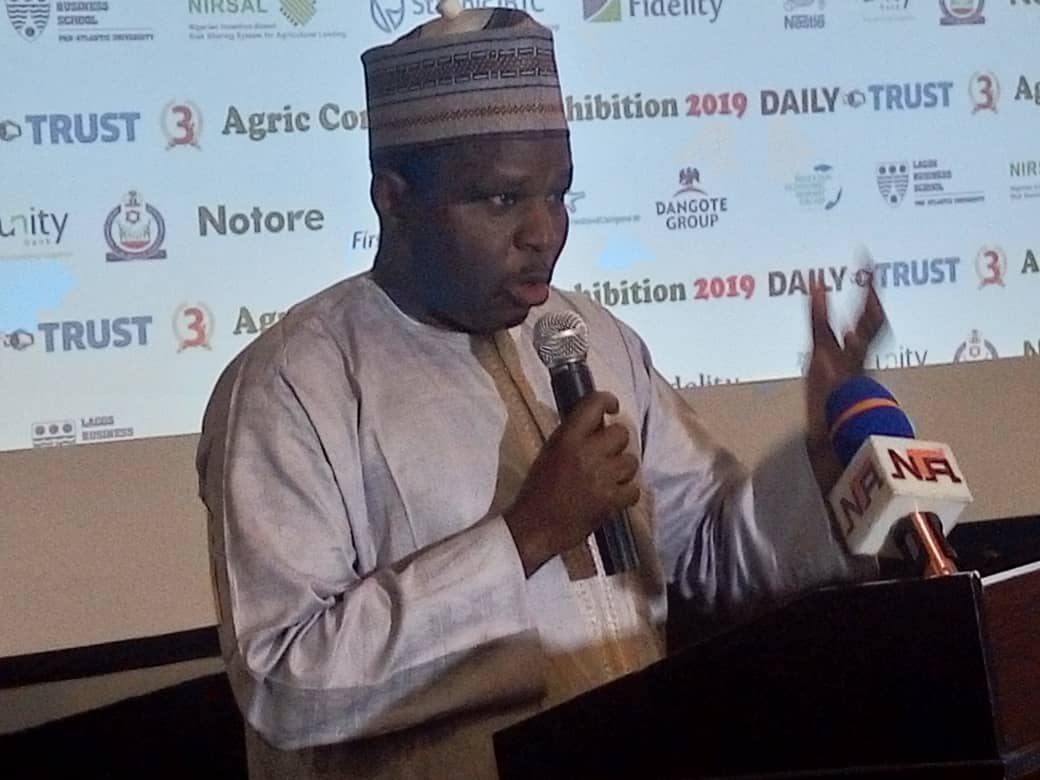The Chief Executive Officer (CEO) and Editor-in-Chief of Daily Trust Newspaper, Malam Mannir Dan-Ali, on Tuesday said the desired shift from subsistence to commercial agriculture in Nigeria cannot be achieved without conscientious efforts by all stakeholders.
According to him, the stakeholders include: government, financial institutions, agro-allied industries, farmers as well as numerous other corporate entities and individuals that have one role or another to play in the entire agricultural production and distribution process.
Dan-Ali disclosed this in his opening remark at the 3rd Daily Trust Agricultural Conference and Exhibition which began in Lagos today. The 2-day conference and exhibition end tomorrow.
He stressed the need for a lot more action by both government and financial institutions to stimulate increased funding interventions for the agricultural sector in the country in order to re-position the sector and enable it deliver the desired value.
“We have seen various intervention projects by government, even under the present administration. Projects like the Anchor-Borrowers’ Scheme of the Central Bank of Nigeria (CBN) are valuable.
“However, it is pretty obvious from our current situation that the government needs to do a lot more and urgently too in certain critical areas in the value chain.
“I believe that it is the desire of every critical stakeholder in this sector for government to influence the provision of a single digit interest rate for agricultural loans.
“Government also needs to ensure that duties and taxes for agricultural implements and equipment are either waived or drastically reduced to make agriculture attractive for millions of citizens,” he said.
According to Malam Dan-Ali, the conference themed, ‘Re-positioning Rice, Sugar and Dairy Production for Optimal Yield’ aims to address fundamental issues that relate to growth and development of the main artery of the nation’s economy, that is agriculture.
He further pointed out that the conference is coming at a time when a major continental policy, ‘the African Continental Free Trade Agreement (AfCFTA), which has the potential to help the Nigerian economy from its sluggishness, has just been endorsed by President Muhammadu Buhari.
Nigeria, he said, has the potential to not only feed itself but also export agricultural produce to its entire sub-regional neighbours, yet it imports huge quantity of the food requirement to sustain its massive population.
“For those of us who are either farmers or agricultural experts, we know that agriculture in Nigeria is still largely practiced at the rudimentary level even though about 70-80 percent of the country’s population depend on it for their livelihood.
“This is fundamentally why we harness much lower yields from our agricultural production and at much slower pace. For instance, a report by PriceWaterhouseCoopers(PwC) has shown that the average yield for rice production in Nigeria remains at two tonnes per hectare, which is about half the average in most Asian countries.
“Put the above statistics side by side the fact that Nigeria is Africa’s leading consumer of rice and also one of the largest rice importers in the world; then, you know that this critical sector of our economy than we have done so far.
“Virtually the same scenario painted in the rice value chain applies in the case of numerous other crops over which Nigeria has economies of scale advantage, if it raises their production.
SEE RELATED: Scenes from 3rd Daily Trust Agric Conference & Exhibition
“I believe this partly explains why a recent report by the United Nations’ Food and Agricultural Organisation (FAO) listed Nigeria among 41 countries in need of external assistance for food due to high levels of food insecurity,” Dan-Ali added.
The two-day event taking place at a period when the Nigerian Government shutdown the nation’s borders along the sub-regional border lines due to illicit trade gives a good opportunity to use forums like the conference to brainstorm on the best ways to harness potentials, not only to feed Nigerians but also to export and generate jobs as well as income for the nation.

 Join Daily Trust WhatsApp Community For Quick Access To News and Happenings Around You.
Join Daily Trust WhatsApp Community For Quick Access To News and Happenings Around You.


